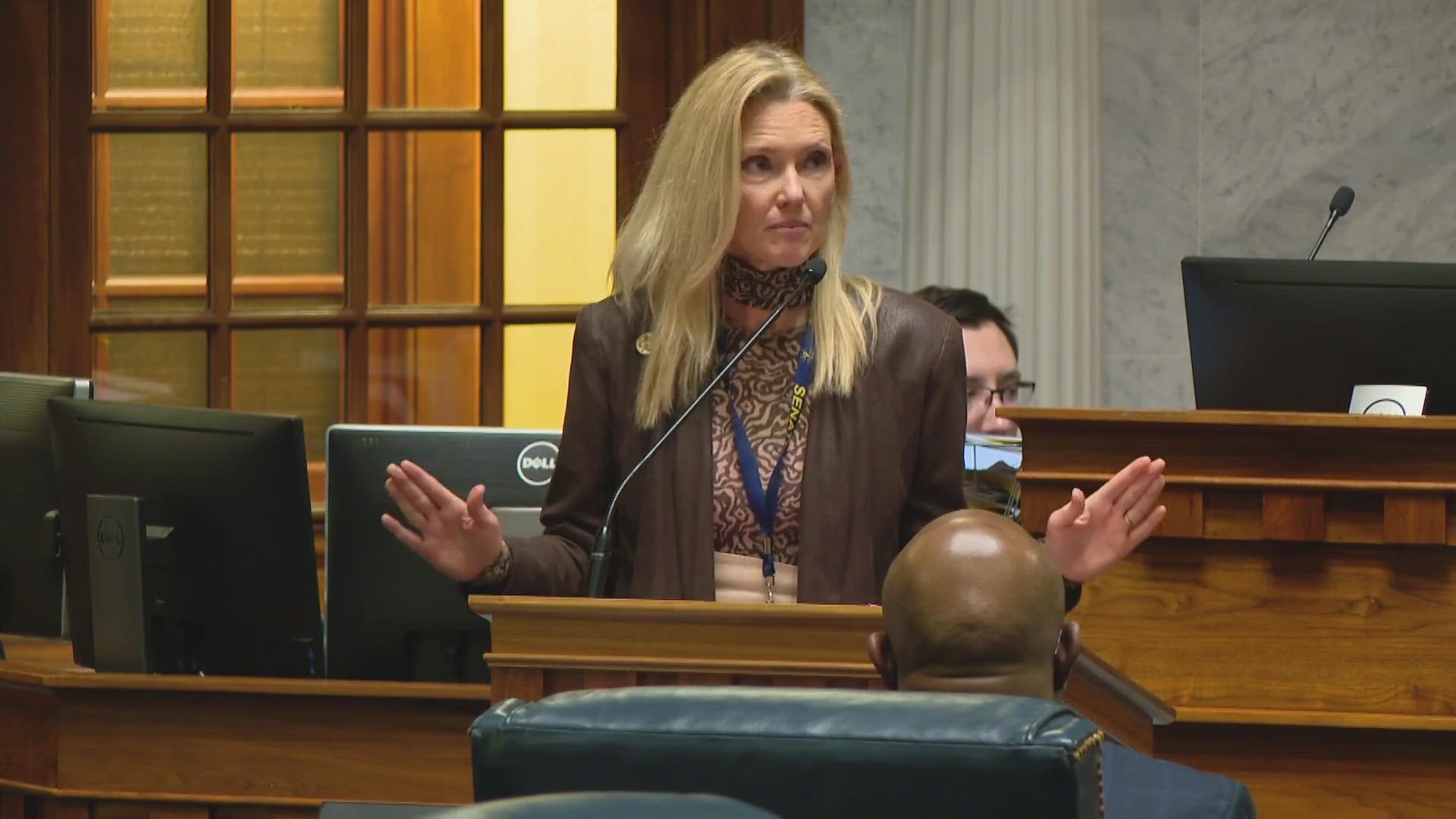INDIANAPOLIS — Several bills in the Indiana Senate are headed to a third read Tuesday. That’s the deadline for the Senate to vote on proposed legislation and send it to the House for consideration.
Among those bills that made it to third read, Senate Bill 480.
It would prohibit Indiana doctors from performing any gender-affirming care on a person younger than 18. The bill has brought out strong emotions on both sides of the issue, with a few hundred demonstrating at the Statehouse last week to protest it.
Sen. Shelli Yoder, D-District 40, proposed an amendment that would allow doctors to perform gender-affirming care on people younger than 18 if the parents sign off on it and have the permission notarized. Ultimately, that amendment failed.
Those who support the bill have positioned it as a way to protect kids from decisions they may change their minds about later in life.
Those who have spoken out against SB 480 say the decision for minors to receive gender-affirming care, like hormone therapy, should be left up to parents.
The bill would also prohibit doctors from performing gender transition surgeries on people under 18, something that is already not happening in Indiana.
“What I’m trying to do here is perhaps plead with you. We have put in place many times a notary to just sort of pump the brakes and have people really think about this, so let’s apply it here and make sure parents know the kind of care that they’re pursuing and the path they are pursuing with their child,” Yoder said before her amendment was voted on and failed.
If SB 480 becomes law, doctors who don’t follow it could face several penalties, including losing their license or having it suspended.
The attorney general would enforce the law and investigate alleged violations.
Also headed to a third reading in the Senate is Senate Bill 161. The proposed law would make it a crime to use a remote tracking device to stalk someone.
SB 161 has garnered support from domestic violence survivors and the people who work with them.
Under the bill, using a tracking device to follow someone without them knowing it would be a crime. The proposed law would make it an even more serious crime if that person had a protective order against the person tracking them.
A suspect would also face more prison time if they used a tracking device to find someone and then commit a felony.
There are some exceptions of who would not get in trouble for tracking someone, including a business and a person tracking a family member, except in situations where a protective order is in place.
“I expect that it will receive very broad bipartisan support. We shouldn’t be doing this to the ladies in our life or anybody. With technology, you slip something in somebody’s purse and you’re following them forever. That’s stalking and should be illegal in Indiana,” said Sen. Aaron Freeman, R-District 32, who offered an amendment that would exclude businesses and some family members.
Bills that receive a majority vote Tuesday in the Senate during third read will then head to the House for lawmakers in that body to consider them and possibly make changes.

